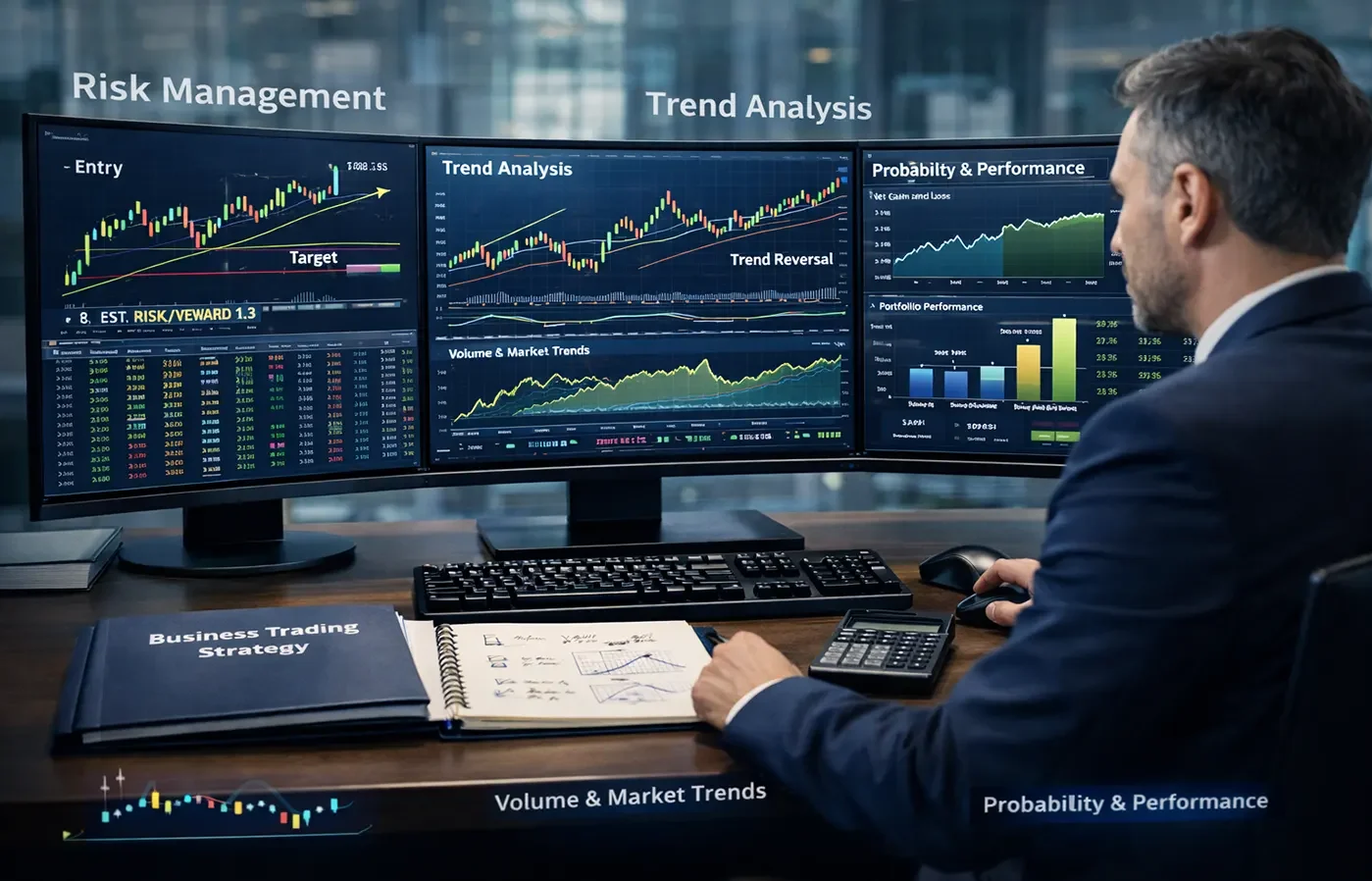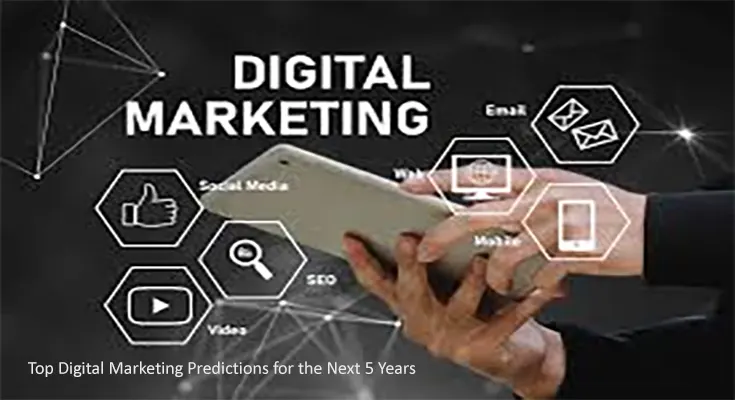The digital marketing landscape is constantly evolving, driven by rapid technological advancements, changing consumer behaviors, and new platforms. To stay ahead in this competitive arena, marketers must not only adapt to current trends but also anticipate what’s next. Whether you’re a business owner, marketing professional, or a student considering your career options, understanding where digital marketing is headed is essential. Many professionals begin their journey by enrolling in structured programs such as Digital Marketing Courses in Pune, which equip them with future-ready skills and strategies.
In this article, we explore the top digital marketing predictions for the next five years. These insights can help you prepare, adapt, and capitalize on the dynamic changes reshaping the world of online marketing.
1. AI Will Lead Hyper-Personalization
Artificial Intelligence (AI) is no longer a futuristic concept—it’s already integrated into tools we use daily, from chatbots to recommendation engines. Over the next five years, AI’s role in marketing will grow significantly, especially in driving hyper-personalization.
- What to Expect:
- Personalized ads based on user behavior, mood, and preferences.
- Automated content creation tailored to individual users.
- Enhanced user experiences via predictive analytics.
Marketers will use AI to understand and predict customer needs in real-time, providing content, products, or solutions before users even ask for them.
2. Voice Search Will Redefine SEO
With the increasing use of smart speakers and voice assistants like Siri, Alexa, and Google Assistant, voice search is changing how users interact with content. By 2030, it’s estimated that over 50% of online searches will be voice-based.
- Impact on SEO:
- More long-tail, conversational keywords.
- Increased emphasis on natural language processing.
- Need for FAQs and concise answers to match voice queries.
Brands will need to optimize their content differently, focusing on how people speak rather than how they type.
3. Video Marketing Will Dominate Content Strategy
Videos already account for a significant portion of online content, and their influence will only grow. In the next five years, video will become the preferred medium for communication and marketing.
- Trends to Watch:
- Short-form videos (Reels, TikToks, YouTube Shorts) will lead.
- Live streaming and interactive video content will surge.
- Shoppable videos with embedded product links.
To stay relevant, brands must produce engaging, mobile-first video content consistently.
4. Augmented Reality (AR) Will Enhance User Experience
AR offers immersive experiences that allow users to try products virtually, navigate through stores, or visualize concepts in real time.
- Applications in Marketing:
- Virtual try-ons for fashion and beauty brands.
- Interactive AR ads on social media.
- Location-based AR experiences for local businesses.
As AR becomes more affordable and accessible, it will revolutionize how users interact with brands online and offline.
5. Privacy-First Marketing Will Become Standard
With increasing concerns about data privacy and stringent regulations like GDPR and India’s DPDP Bill, businesses must embrace transparency and consent-driven strategies.
- What This Means:
- Greater reliance on first-party and zero-party data.
- Cookieless tracking technologies.
- Transparent opt-in/opt-out mechanisms.
Marketers will need to prioritize ethical data practices to build and maintain trust.
6. Social Commerce Will Take Center Stage
Social commerce—the buying and selling of products directly on social media platforms—is gaining traction fast. Platforms like Instagram, Facebook, Pinterest, and TikTok are blurring the line between browsing and buying.
- Emerging Capabilities:
- In-app purchases and native checkout.
- Influencer-led product launches.
- Live shopping events.
Social commerce will become a critical component of e-commerce strategies for brands across industries.
7. Content Will Get Even More Interactive
Static content will no longer be enough to engage today’s digitally savvy consumers. Interactive content will offer a dynamic and engaging way to drive conversions.
- Examples Include:
- Quizzes and polls.
- Interactive infographics.
- Gamified experiences.
- AR filters on social platforms.
Interactive content not only increases engagement but also provides valuable user data.
8. Search Will Move Beyond Google
While Google still dominates search, alternative platforms like TikTok, YouTube, Pinterest, and even Reddit are becoming popular “search engines” for younger audiences.
- Implications for Marketers:
- Need for cross-platform SEO strategies.
- Content optimization tailored for each platform’s search behavior.
- Leveraging hashtags, visuals, and audio cues for visibility.
Being discoverable on non-traditional platforms will be crucial to reaching niche audiences.
9. Chatbots Will Be More Human and Proactive
AI-powered chatbots will evolve from reactive support tools to proactive customer engagement agents.
- Expect Bots to:
- Initiate conversations based on user behavior.
- Handle complex queries using natural language processing (NLP).
- Integrate across websites, WhatsApp, and Messenger.
Seamless and intelligent chatbot experiences will be key to enhancing customer satisfaction.
10. Email Marketing Will Become Smarter
Email remains a powerful tool when used correctly. Future email campaigns will be deeply personalized, AI-driven, and responsive to customer behavior.
- Innovations to Anticipate:
- Smart segmentation and predictive targeting.
- Dynamic email content that changes based on user interaction.
- Integration with CRM and sales automation tools.
Brands will focus more on nurturing relationships than just selling through email.
11. The Rise of Micro and Nano Influencers
While celebrity influencers still have reach, micro (10K–100K followers) and nano (under 10K) influencers boast higher engagement and more authentic relationships with their audiences.
- Why This Trend Matters:
- Affordable and accessible for small businesses.
- Highly targeted reach within niche communities.
- More trustworthy and relatable than mainstream influencers.
Influencer collaborations will become more localized and personalized.
12. Blockchain Will Transform Digital Advertising
Blockchain can bring transparency and efficiency to digital advertising by verifying ad metrics, reducing fraud, and enabling direct transactions.
- Benefits of Blockchain:
- Verified impressions and clicks.
- Secure user identity and privacy.
- Better ROI tracking for advertisers.
Though still in its early stages, blockchain adoption will redefine how brands buy, sell, and measure ads.
13. Sustainability Will Influence Marketing Messaging
Today’s consumers care deeply about sustainability, ethics, and social responsibility. Over the next five years, brands will need to align with these values to build trust and loyalty.
- Strategies to Consider:
- Highlight eco-friendly practices.
- Reduce digital carbon footprints.
- Support social causes through campaigns.
Purpose-driven marketing will become a norm, not an exception.
14. Omnichannel Marketing Will Be Mandatory
Consumers interact with brands across multiple touchpoints—websites, social media, apps, email, physical stores. An integrated, omnichannel approach will be critical.
- Key Focus Areas:
- Unified customer data across channels.
- Seamless experience from online to offline.
- Personalized messaging across platforms.
Brands that offer consistent, cohesive experiences will win customer loyalty.
15. Real-Time Analytics Will Drive Instant Decisions
The demand for faster, data-driven decisions is rising. Real-time analytics will empower marketers to pivot campaigns instantly based on live user behavior.
- Applications Include:
- Dynamic pricing updates.
- Real-time retargeting.
- Adaptive landing pages based on visitor profile.
With predictive and prescriptive analytics, marketing will shift from reactive to proactive.
Preparing for the Future: What Should You Do?
The digital marketing world will look vastly different five years from now. Here’s how to stay prepared:
- Invest in Continuous Learning: Stay updated with trends, tools, and certifications.
- Test and Experiment: Be open to trying new platforms and strategies.
- Prioritize Data Ethics: Build customer trust with responsible data use.
- Focus on Value Creation: Serve before you sell—create real value for your audience.
The marketers who thrive will be those who combine creativity with technology and strategy with empathy.
Final Thoughts
The next five years will bring a seismic shift in digital marketing. From AI and AR to sustainability and privacy-first strategies, brands that innovate and adapt will stay relevant and successful. These transformations underline the importance of learning foundational and advanced marketing skills today to prepare for tomorrow.
One of the best ways to future-proof your career or business is by enrolling in a reputable digital marketing institute in Pune, where you can gain hands-on knowledge, practical experience, and career-oriented insights that align with industry changes.


